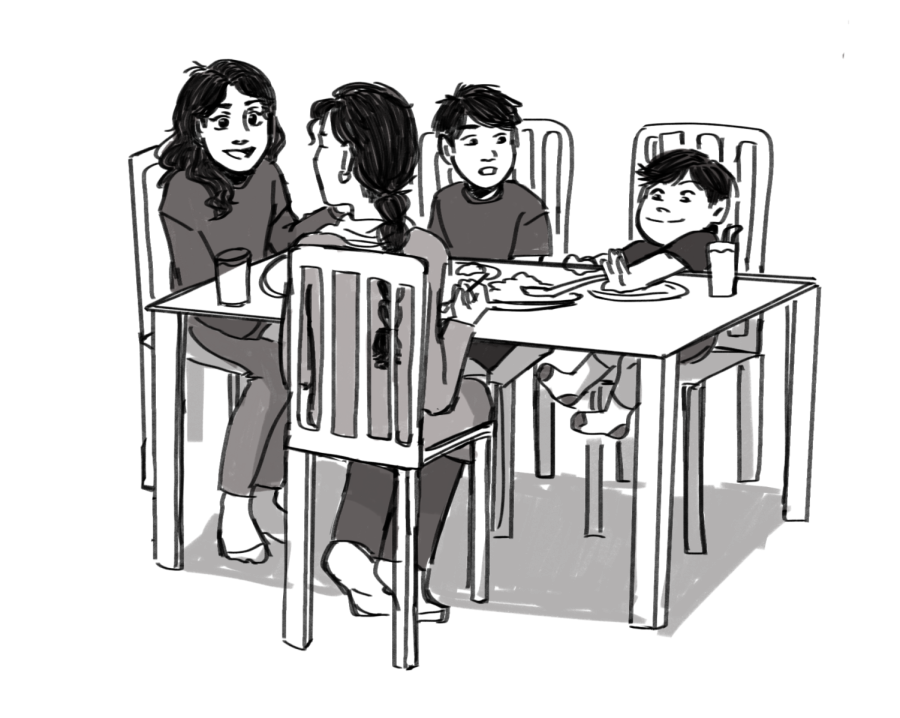The benefits that come from eating with others
Finding the time and opportunity to eat with others is not easy for everyone; school, work, and extracurricular activities pose significant challenges to creating time during the day to sit with someone and share a meal. A person’s social battery may be drained by the time dinner comes around, a problem that extends to both children and adults. Some people may prefer not to eat around others at all. The fast pace of life in today’s age especially here in Silicon Valley makes it tempting to save time on eating by resorting to fast food, eating at one’s desk or eating in front of a TV or laptop. However, these time-saving techniques have several negative implications on one’s health, and on the other side of the coin, eating with others has positive impacts on many aspects of one’s life.
For one, eating with others encourages individuals to make healthier choices when it comes to food. In the case of eating with family, you will likely be enjoying home-cooked meals that are usually much more healthful than dine-in restaurants or take-out, due to the lesser salt, fat and caloric content. Additionally, when engaged in conversation, you will probably be eating slower than if you were alone. Slow eating, according to a study conducted by Kyushu University in Japan, is a contributing factor to better digestion. Plus, being in the presence of friends or family can encourage someone to opt for the healthier choice, as opposed to what they would choose when eating alone. When you are sitting in front of a friend deep in conversation, you are less likely to reach for that bag of chips and risk making yourself seem unengaged. Being around others makes us more conscious of our eating habits.
Conversely, the absence of social influence allows for destructive habits such as stress or binge eating. According to BetterHealth, if left unchecked, these habits have the potential to cause a slew of health issues such as type two diabetes, cardiovascular disease and depression.
But perhaps the most important part of eating with others is the potential to strengthen relationships. This is especially impactful on children, as growing up with a routine that acts as daily support can completely change their relationship with their family. Getting the chance to talk about your day over a meal with someone can mean a lot, even if you do not realize it.
In terms of friends, the act of eating is a show of vulnerability, so when someone eats around you, it is an indication that they feel safe in your presence. This is one reason why eating with others can promote bonding.
Eating is an extremely effective channel to foster social bonds, so take advantage of the opportunities you are presented with to sit with someone and enjoy good food.












